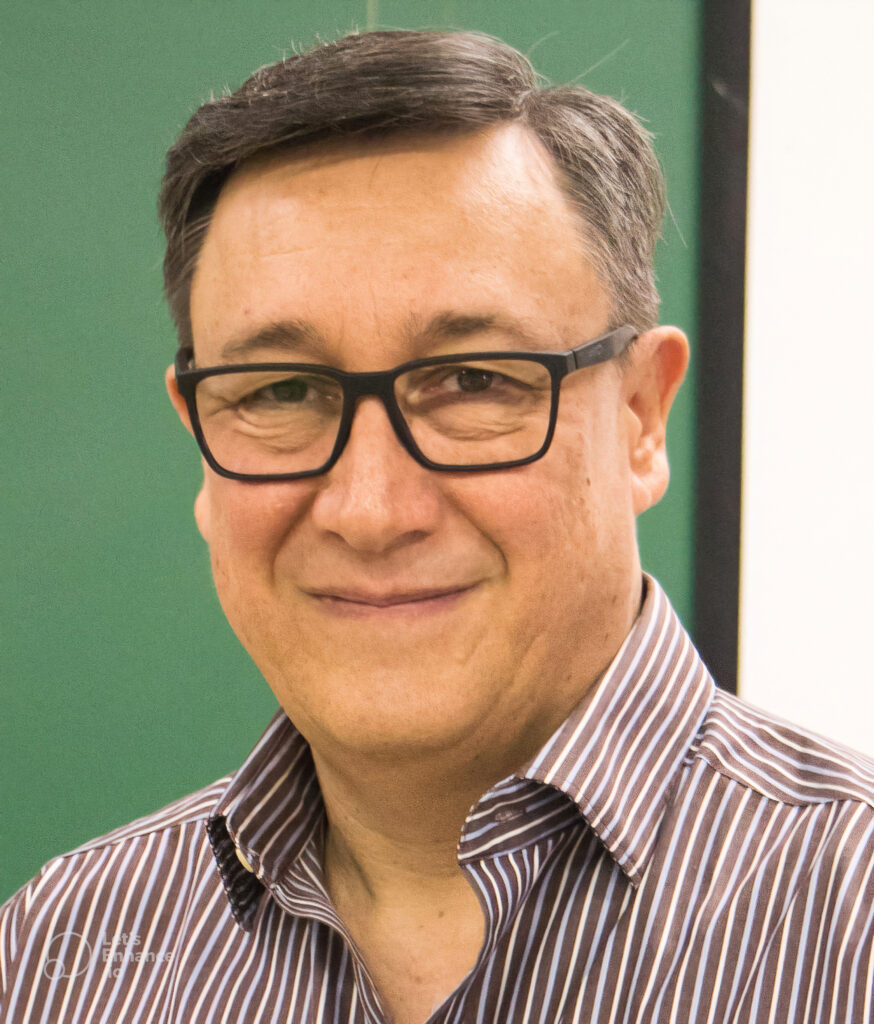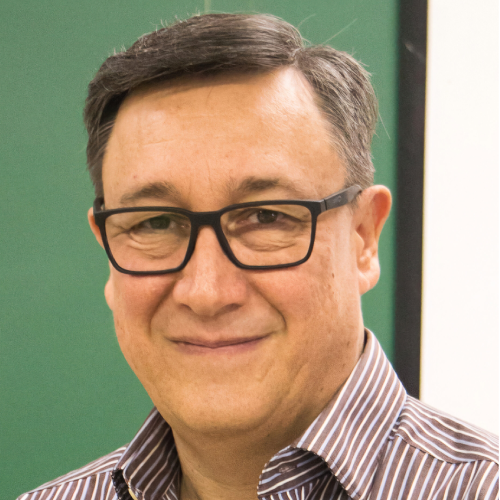

Osvaldo Succi is the COIL / Virtual Exchange coordinator at the Higher Education Unit of the Centro Paula Souza in Sao Paustatelo, Brazil.
He spent years as a professor of English and it was during this time that he had the realisation that his students needed more than they were getting with traditional teaching frameworks.
They needed to interact with real people in professional situations in English. To this end, Osvaldo began bringing over his colleagues from the US (where he received his Masters’ degree).
It was during one of these visits that a colleague drew his attention to COIL/VE as the future. A spark was lit back in 2013 and Osvaldo began his virtual exchange journey from where he has never looked back.
The institution CPS
Centro Paula Souza is a public vocational institution in the state of Sao Paulo, which offers higher, secondary and graduate education.
“The institution manages 228 technical high schools, and 81 technical community colleges. These technical college degrees allow you to go on to graduate school. We are improving our graduate programmes with a focus on higher education and we have 91 thousand students enrolled in 101 technological undergraduate courses.
“We are predominantly a vocational institution and cover areas such as forestry, civil construction, mechanics, tourism and more.”
(See here to learn more about the Mission, Vision and Values of the Institution.)
Introducing Virtual Exchange
“”As a professor, I have always wanted more for my students. And I believe that my interest in COIL/virtual exchange in 2013 has helped to improve things in terms of cultural competency and global outlook.”
“Keep in mind that Brazil is a very linguistically isolated country, and politics aside, it’s very monolingual. Most of the population lives on the coast and Portuguese is our main language. There are very few indigenous Brazilian languages that have a significant presence in our society. And we have mostly Spanish-speaking countries on our borders. But these are very far from the main cities..
“Because of our perceived monolingualism, it is difficult to make students aware of the importance of language and being bilingual or trilingual. What I was doing by bringing my colleagues from the US was not very cost effective in the end. So when I began to dabble in COIL/VE, I thought all my prayers had been answered. Therefore, I began to dig deeper to try to understand more about this innovative pedagogy that is virtual exchange.
Our first project was with the State University of New York at Ulster in 2013. To date, we have completed close to 700 projects and 13,000 students have participated in a virtual exchange.” .
Management strategy for COIL/virtual exchange
Osvaldo is now out of the classroom and is the coordinator of the COIL /VE strategy at the Centro Paula Souza.
“Passion will get you so far,’ he laughs, ‘but then you need people on board. Our strategy was bottom-up first and then top-down.
By bottom-up, I mean that me and a colleague in one of our units created a VE project, which we then began to spread to other units within our institution. Our higher administration realised that this was a pretty good idea, and so I was allowed to take the project out and into the whole system.”
Osvaldo says they had no formal training in Virtual Exchange, but rather solid support with hands-on experience, a learn-by-doing model from Hope Windle of the SUNY COIL Center.
“It’s part of our DNA here now. We don’t do big trainings either, but we coach our professors through the whole process from start to finish. We partner with our Brazilian professors and help them create their first project and hold their hand to get a first solid successful project off the ground. During a second iteration, we provide follow-up. And to be honest, by the time they do it for a third time, according to our research, they are almost proficient..
“This outcome was reflected in the vision of our upper admin team. They ended up giving me hours to work on this outside of the classroom and now I have a team of 4 professors working with me on this part time.”
Institutional buy-in for COIL/virtual exchange
Osvaldo says the buy-in for COIL/VE was good. He explains how Brazil is a bit different from other countries due to its isolation in the dictatorship that ended in 1985. And it is a multi-cultural country.
“Brazilians love international people and sometimes we treat foreigners better than our own!
“Our professors are enthusiastic, and they see COIL as an opportunity to have a writing partner in other countries to partner up with at conferences, for example.
“On the downside, we do have a proficiency problem and not all professors are up to the required standards of Spanish and English.
“That said, the fact that we have English and Spanish in the curriculum has really helped us. We have 220 English professors and over 80 Spanish professors. In this way, we pair technical professors with language professors. That’s how we get people on board and that’s how we make it work. So, I’d say the buy-in is good – but sometimes the linguistic knowledge gets a boost when we team them up to create a project.
Branching out with virtual exchange
“Our virtual exchange collaborations have evolved over time. Although we began as an interdisciplinary initiative, our language professors have contributed significantly to enhancing the quality of our partnerships. In general, language professors possess more pedagogical training. This training enables them to effectively support a predominantly vocational institution that covers areas such as welding, forestry, and international trade”
Centro Paula Souza’s COIL VEs initially launched collaborative projects with the United States and continue to maintain solid partnerships there. However, between 2013 and 2025, these international alliances evolved significantly, expanding to include more than 60 higher education institutions across 20 different countries.
Benefits of VE for the CPS
Osvaldo reminisces back to 2013. “I remember the first project, and I remember students jumping up and down in the long hall at university, just so excited to have the opportunity to talk to other students in the US. This is something they could never have imagined before the advent of COIL/VE.
“This interaction with internationals gave them a fantastic sense of worldliness and a sense of ‘we can do this’. You have to understand that there is a serious underdog mentality here and suddenly the students realised they could negotiate with others and create projects.”
Osvaldo says he was most touched by the specific awareness students got during the VE in how certain countries in the global north treat some countries in the global south.
“But there is also an interesting perspective on a current project we have with Venezuela. I thought that my students might be concerned about the illegal migration of poor Venezuelans and the influx into an underprivileged part of our country. With this concern in mind, I spoke with my Venezuelan colleague and we agreed that we needed to involve the students. This colleague works with documentaries. And so, we decided not to focus on the poor Venezuelans, but rather on a common problem we share. That focus is on the Yanomami people, whose territory straddles the border between Brazil and Venezuela; their territory is divided by our borders. Our students are currently working on a documentary about the problems the Yanomami face due to contact with Western society.”
With this project, Osvaldo believes the students will benefit from a dual perspective from two countries who share a common problem.
“I think this could be a very significant collaboration.”
The Future
Osvaldo is convinced that future projects will definitely have this type of focus and he says he is keen to collaborate further with UNICollaboration.
“There are great people everywhere,’ he says, ‘but you need time to meet them and to talk with them and share your perspectives and viewpoints. COIL creates this safe environment to talk and bring their ideas into the room.
“And to see each other’s perspective can change lives. COIL has changed my life as a researcher and a person. When I walk on the street and observe the people around me, I am so much more aware of potential problems. I have entrenched in me perspectives from Cameroon, from China, even the US, and Europe. This means that virtual exchange gives us a broader perspective and makes us better people.
“Centro Paula Souza’s rich COIL VE history is chronicled in our newsletter VEm—a key resource for understanding the institution’s journey. Although the editions are in Portuguese, modern translation tools make it easy for international readers to capture the essence of our narrative. With all 28 editions available for access at publicacoescesu.cps.sp.gov.br.
Anyone interested in exploring our past developments can delve into a comprehensive archive.
Additionally, I am eager to forge new projects with the UNICollaboration community, so if you share this passion, please contact me via this email osvaldo.succi@cps.sp.gov.br”.
